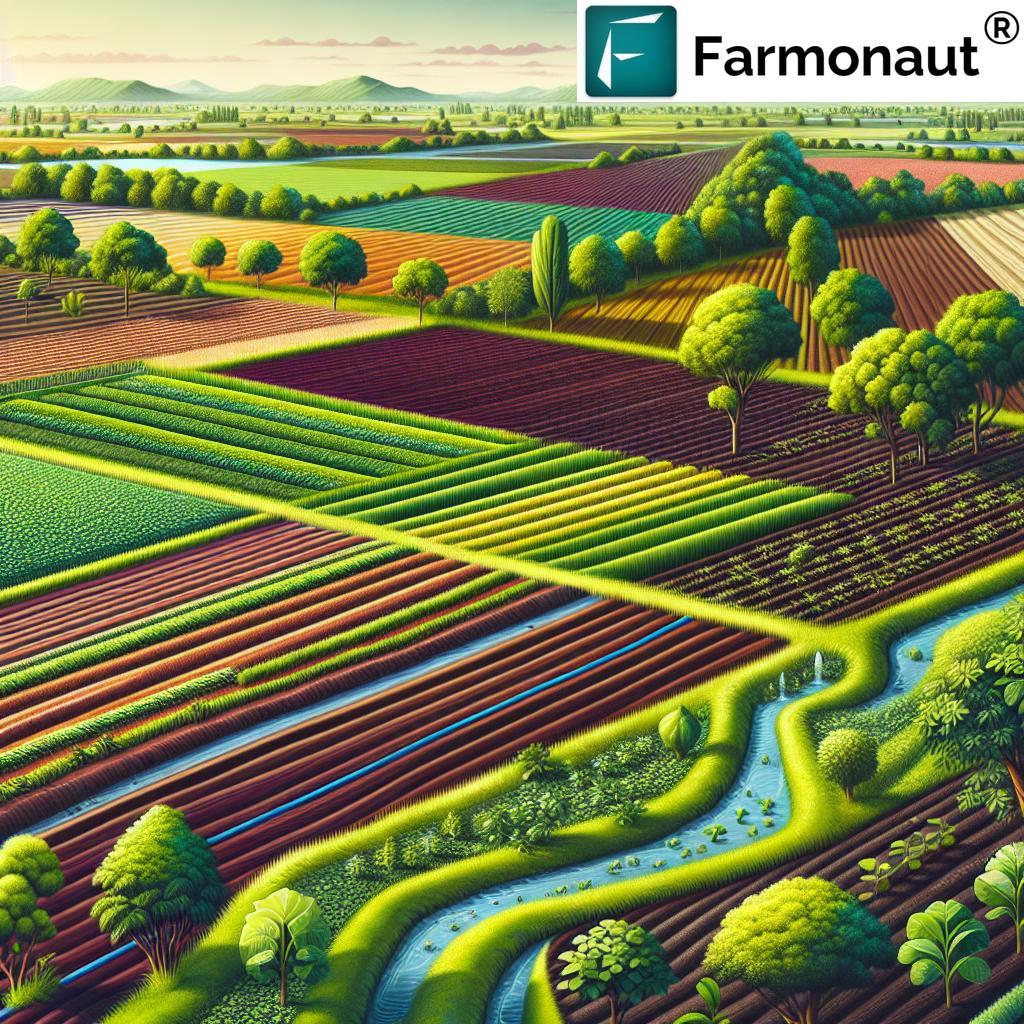Autonomous Agricultural Machinery Company in Pakistan 2025: Revolutionizing Farming with Cutting-Edge Technology
“By 2025, over 35% of new agricultural machinery in Pakistan is projected to be autonomous.”
Introduction
In recent years, the agricultural landscape of Pakistan has undergone a transformative shift. The integration of autonomous agricultural machinery marks a pivotal era for Pakistani farming. As agriculture continues to be the backbone of Pakistan’s economy, contributing significantly to the country’s GDP and employing a substantial portion of the population, the march towards automation and technology is both urgent and inevitable.
This comprehensive guide explores how autonomous agricultural machinery companies are reshaping Pakistan’s farming sector in 2025 and beyond—boosting productivity, sustainability, and farmer profitability. Discover the leading technologies, the companies at the innovation frontier, the challenges, and the evolving support ecosystem—plus how advanced digital and satellite solutions like those from Farmonaut are driving informed, efficient agricultural decision-making.
Focus Keyword: Autonomous Agricultural Machinery Company in Pakistan 2025
Understanding the Backbone: Agricultural Sector in Pakistan
Agriculture is not only the backbone of Pakistan’s economy; it also employs a substantial portion of the population. The sector contributes about 22% to Pakistan’s GDP and directly or indirectly supports over 40% of the national workforce. The sector’s significance cannot be overstated, but neither can its challenges.
- Rising input costs for seeds, fertilizer, water, and energy.
- Labor shortages due to rural-urban migration and an aging workforce.
- Inefficient traditional practices that lower output and increase waste.
- Climatic uncertainties such as droughts, floods, and unpredictable weather.
- Limited adoption of modern technologies and innovation tailored to local needs.
These challenges have underscored the urgent need for modernization and efficiency—especially through technological innovation in agricultural machinery.
The Evolution of Agricultural Machinery in Pakistan
Historically, agricultural machinery in Pakistan has relied on basic tractors, tillers, combine harvesters, irrigation pumps, and related equipment. Much of this was either imported or mass-produced domestically with limited innovation.
- Limited adaptability: Most machines were not tailored to the varied, local needs or the small-to-medium farm sizes typical in regions like Punjab and Sindh.
- Inefficiency: Traditional machines led to resource waste and high input costs due to lack of precision.
- Accessibility: Smallholder farmers found it challenging to afford or maintain modern machines.
As a result, the push towards automation and smart agricultural machinery has gained clear momentum by 2025.
2025: The Momentum Towards Autonomous Agricultural Machinery
By 2025, Pakistan has witnessed a transformative shift driven by the integration of autonomous agricultural machinery. The adoption of automation and digital technologies in the agricultural machinery sector is revolutionizing farming by enabling:
- Reduction of labor dependency through autonomous field operations.
- Precision farming, lowering input and resource waste, and maximizing yields.
- Improved resource management (water, fertilizer, pesticides) through data-driven decisions.
- Addressing climatic uncertainties through real-time data and adaptive practices.
- A focus on sustainability—reducing emissions and environmental impact.
With the rise of autonomous agricultural machinery companies, both domestic startups and international collaborators have become key players in the market, emphasizing:
- Designing machines suited to Pakistan’s varied agro-ecological zones
- Enhancing adaptability for small and medium-sized farms
- Ensuring cost-effectiveness, easy maintenance, and local support
Key Innovations: Types of Autonomous Agricultural Machinery in Pakistan
The evolution from traditional to smart, autonomous systems is now prominent across Pakistan’s farming sector. The following types of machinery represent the forefront of technological innovation in 2025.
1. Autonomous Tractors
- Utilize GPS navigation and onboard sensors for unmanned plowing, tilling, and farm mobility.
- Cut operating costs and ensure timely field operations, especially where labor shortages are acute.
- Examples: AI-guided mini-tractors for Punjab and Sindh regions—ideal for smallholder farmers.
2. Robotic Seed Planters and Harvesters
- Perform precise seeding and harvesting with minimal human intervention.
- Lower input costs by using exact quantities of seeds and fertilizer.
- Boost crop yields through enhanced planting density and uniform harvests.
3. Drone-Assisted Crop Monitoring and Spraying
- Drones equipped with advanced sensors perform crop health monitoring, identify pest/disease outbreaks, and execute automated spraying.
- Reduce water and chemical use by precision targeting.
- Real-time data analytics delivers actionable insights for intervention.
4. Smart Irrigation and AI-Driven Water Management
- AI-powered irrigation systems ensure optimal water delivery based on crop needs, weather, and soil conditions.
- Reduce water waste—especially crucial in water-stressed provinces.
5. Fleet Management and Telematics-Enabled Machines
- Leverage IoT and AI to monitor, dispatch, and maintain fleets of autonomous tractors, harvesters, and sprayers.
- Improve operational efficiency and reduce vehicle downtime/costs.
Comparison Table of Leading Autonomous Agricultural Machinery Companies in Pakistan (2025)
In 2025, several key agricultural machinery companies are championing the adoption of autonomous technologies, each with a strong focus on innovation, adaptability, and sustainability. The comparison table below summarizes the top players revolutionizing agricultural machinery in Pakistan:
| Company Name | Type of Machinery Offered | Key Autonomous Features | Estimated Market Share in 2025 (%) | Estimated Cost Range (USD) | Main Technological Innovation |
|---|---|---|---|---|---|
| AgTech Dynamics | Autonomous tractors, robotic planters, AI sprayers | GPS, real-time data, app control | 22 | $15,000–$65,000 | Precision GPS navigation & AI-equipped field ops |
| SmartHarvest Pakistan | Autonomous harvesters, mini-tractors | LIDAR, AI object recognition | 19 | $13,000–$80,000 | LIDAR-driven terrain adaptation & yield mapping |
| DroneFarm Solutions | Agricultural drones, autonomous spraying systems | Automated flight, multispectral imaging | 18 | $3,000–$22,000 | Drone-based analytics & crop health monitoring |
| PakAgro Robotics | Robotic planters, smart seeders, irrigation bots | Autonomous seeding, IoT-controlled water usage | 13 | $7,500–$36,000 | AI-enhanced seeding & smart irrigation systems |
| AgriNext Automation | Fleet & resource mgmt. systems, autonomous tillers | Telematics, real-time diagnostics | 10 | $6,000–$28,000 | Telematics-driven fleet optimization |
| AgroVision Technologies | Autonomous irrigation, smart crop monitors | AI, sensors, mobile connectivity | 8 | $5,000–$25,000 | AI irrigation scheduling & environmental sensors |
| FieldAI Systems | Multi-crop autonomous machinery suite | Integrated platform, blockchain support | 5 | $10,000–$62,000 | Blockchain-backed corrective analytics |
*All data are 2025 estimates for comparative and informational purposes.
Impacts of Autonomous Machinery on farming Productivity, Sustainability, and Profitability
The adoption of autonomous agricultural machinery in Pakistan is rapidly reshaping the country’s farming models. The impacts are substantial across productivity, environmental sustainability, and profitability.
Productivity Enhancement
- Labor shortages are efficiently addressed as machines operate fields with minimal human oversight.
- Time-sensitive operations such as seeding and harvesting are executed promptly, reducing crop loss and maximizing outputs.
- Consistent machine-led practices standardize outputs, improving planning and yield predictions.
Sustainability and Resource Efficiency
- Precision application of water, fertilizer, and pesticides reduces resource waste and contamination.
- Eco-friendly operations help meet Pakistan’s commitment to combating climate change.
- Reduced carbon footprint with lower fuel and chemical inputs. Discover how Farmonaut helps farmers monitor and reduce their carbon footprint.
Profitability and Economic Resilience
- Lower input and labor costs directly raise farm profitability.
-
Automated fleet and equipment management reduces downtime and maintenance expenses,
supported by digital solutions like Farmonaut’s Fleet Management tools. -
Greater market access via traceable, quality-assured harvests—blockchain-based traceability ensures transparency for buyers and regulators.
Learn more about Farmonaut’s Traceability solutions for agriculture.
The Ecosystem: Infrastructure, Training, and Digital Support
The adoption and sustained utility of autonomous agricultural machinery are intrinsically linked to broader infrastructure development and digital support:
- Improved rural electrification, mobile internet penetration, and 4G/5G coverage enable real-time machinery monitoring, software updates, and telematics data flows.
-
Digital platforms now support machinery leasing, remote diagnostics, and intervention—reducing the upfront investment barrier for small farmers.
See how Farmonaut’s Large-Scale Farm Management empowers agricultural businesses to scale operations seamlessly. - Training and after-sales support are provided both in-person and via digital classrooms, enabling farmers to learn new systems, basic maintenance, and troubleshooting.
-
Telematics and API integration link autonomous equipment with satellite and analytic platforms.
Explore Farmonaut’s API for integrating real-time satellite insights with agricultural equipment.
For technical onboarding, visit our API Developer Docs.
This ecosystem ensures effective utilization and sustained efficiency of modern agricultural machinery.
Policy Push: Government Support and Incentives for Modernization
A supportive policy framework is essential for the rise of autonomous agricultural machinery companies in Pakistan. Key government actions, as seen in 2025, include:
- Subsidies for advanced equipment to encourage early adoption.
- Import duty reductions on specialized components, making modern machinery more affordable for local farmers.
- Support for localized innovation, R&D, and technology demonstration centers—bridging knowledge gaps in rural areas.
- Facilitation of farmers’ training and upskilling on autonomous equipment operations through agricultural extension programs.
-
Offering finance and insurance mechanisms that leverage digital monitoring for verification.
Farmonaut’s satellite data helps lenders and insurers validate crop conditions and reduce fraud.
Challenges, Roadblocks, and The Way Forward
While the rise of autonomous agricultural machinery marks a pivotal stride toward modernization in Pakistan, several challenges remain as of 2025:
- High initial investment—even with subsidies, the upfront cost remains significant for smallholders.
- Technical skills gap—ongoing training and support are needed to ensure effective machinery operation and basic troubleshooting.
- Limited local customization—further research is required to optimize performance on various Pakistani soils, crops, and terrains.
- Finance & lending hurdles—not all farmers have access to affordable loans for machinery purchases.
- Maintenance and after-sales support—wider service networks are required in rural and remote areas.
Despite these challenges, the combined efforts of the government, machinery companies, and technology-driven service providers are building a pathway for long-term, inclusive technological evolution in Pakistani farming.
Farmers are increasingly adopting digital advisors and monitoring platforms to augment their use of modern agricultural machinery. Farmonaut’s Jeevn AI Advisory and satellite-based monitoring support farmers with real-time insights for smarter, more sustainable farm management.
“Autonomous harvesters in Pakistan can cover up to 60 hectares daily—double the capacity of conventional tractors.”
Farmonaut: Satellite-Driven Agricultural Innovation in Pakistan
We at Farmonaut are committed to empowering the modernization of agriculture in Pakistan with affordable satellite-driven insights, AI-powered advisory, and advanced resource management tools. Our solutions are tailored to support farmers, agri-businesses, and even government agencies by integrating real-time data, remote monitoring, and smart analytics.
- Satellite-based crop monitoring: Get real-time NDVI, soil health status, and yield prediction with multispectral image analysis.
- Jeevn AI Advisory: AI-driven actionable advice on crop management, weather forecasting, and resource optimization. Start using Jeevn AI today.
-
Blockchain-based traceability: Enhance transparency, quality assurance, and market access through secure tracking of crop production chains.
Learn about secure supply chain traceability. -
Fleet and resource management: Optimize the use of autonomous machinery and equipment for improved operational efficiency.
Explore Farmonaut’s Fleet Management tools for agriculture. -
Environmental impact monitoring: Track carbon emissions and promote sustainable practices for a greener future in farming.
Find out about Farmonaut’s carbon footprint tracking solution. - API & Integration: Seamless integration with your farm equipment and business systems using Farmonaut’s open API. For custom apps, view our developer documentation here.
Our platform is accessible via Android, iOS, and the web, keeping agricultural stakeholders connected at every stage.
Start monitoring your fields via Farmonaut’s easy-to-use app.
Farmonaut grows with your operation. Whether you’re a smallholder, a large corporate, or a government entity, you’ll find scalable, affordable plans for enhancing productivity, transparency, and sustainability in your agricultural ventures.
Frequently Asked Questions (FAQ)
What is autonomous agricultural machinery and how is it changing farming in Pakistan?
Autonomous agricultural machinery refers to farm equipment that operates with minimal human intervention. Using technologies like GPS, sensors, AI, and robotics, these machines can perform tasks such as plowing, seeding, spraying, and harvesting. In Pakistan, the rise of such machines is helping farmers overcome labor shortages, reduce input costs, and significantly improve yield and sustainability.
Which are the main autonomous agricultural machinery companies operating in Pakistan in 2025?
As of 2025, leading companies include AgTech Dynamics, SmartHarvest Pakistan, DroneFarm Solutions, PakAgro Robotics, AgriNext Automation, AgroVision Technologies, and FieldAI Systems. These companies offer a diverse range of autonomous tractors, drones, harvesters, and AI-driven irrigation solutions that are tailored to local farming needs.
What challenges do farmers face in adopting autonomous agricultural machinery in Pakistan?
Major challenges include high initial costs, limited access to finance, the need for ongoing technical training, and ensuring that equipment can adapt to diverse Pakistani crops and terrain. The government and technology providers are actively working to address these issues with subsidies, training programs, and improved digital support systems.
How does Farmonaut support Pakistani farmers using autonomous machinery?
We at Farmonaut provide satellite-based crop monitoring, AI advisory (Jeevn AI), blockchain traceability, environmental impact assessment, and fleet/resource management tools. Our platform enables farmers and agribusinesses to make data-driven decisions and maximize the benefit of autonomous machines. Farmonaut’s tools integrate seamlessly with modern farm equipment to drive efficiency, transparency, and sustainable growth.
Are there affordable subscription plans for Farmonaut’s agricultural analytics and insights?
Yes. We offer flexible, scalable subscriptions via web and mobile apps for individual farmers, agribusinesses, and government users. You can monitor crops, track resource efficiency, and receive AI-based advisories—all aiming to make satellite-driven analytics accessible to all.
Conclusion: Pakistan’s Autonomous Agricultural Future
The autonomous agricultural machinery company ecosystem in Pakistan stands at the threshold of a new era as we move through 2025 and beyond. By embracing innovation, automation, and smart agricultural practices, Pakistan is addressing deep-rooted challenges in labor shortages, rising input costs, and inefficient traditional practices. The rise of autonomous agricultural machinery—pushed forward by dedicated companies, a progressive policy environment, and satellite-driven platforms like those from Farmonaut—marks a pivotal stride towards productivity, profitability, and sustainability.
As the sector continues to evolve, the focus remains on enhancing yields, conserving resources, and making farming a viable vocation for the upcoming generations—regardless of farm size. The exemplary blend of technology, local adaptability, and digital empowerment is setting Pakistani agriculture on a path aligned with global trends in smart, autonomous farming.
For farmers, agri-businesses, and policymakers, the time is now to leverage these innovations, respond to ongoing challenges, and prepare for a future where innovation meets tradition in the fields of Pakistan.











